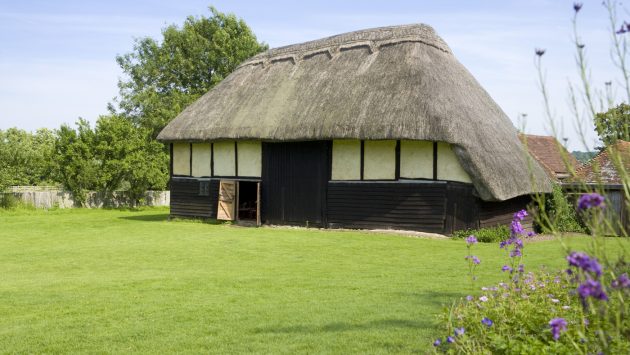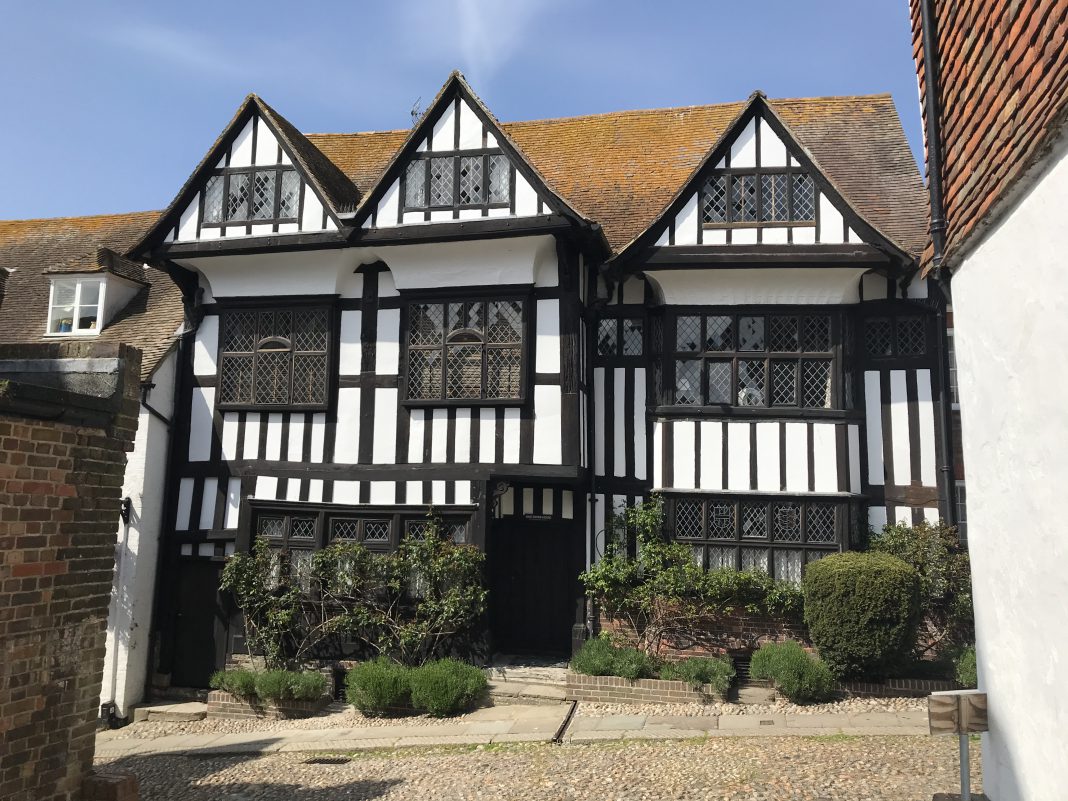One of the main attractions for many of the thousands of visitors to Rye is the wealth of historic architecture with some of the heavily timbered buildings, like the one shown above, dating back hundreds of years. If those walls could talk, just think of the stories we’d hear. How different life would have been then, it’s when many of the old sayings we now use originated from, centuries ago. Have you ever wondered how they came about? Here’s a few to start with but if you have any more, please forward them to info@ryenews.org.uk
Apparently, during the 1500s many people got married in June, because they took their yearly bath in May and they still smelled pretty good by June. However, when they started to smell, brides carried a bouquet of flowers to hide the body odour. Hence the custom today of carrying a bouquet when getting married.
Baths consisted of a big tub filled with hot water, the man of the house had the privilege of bathing in the nice clean water, then all the other sons and men, then the women and finally the children. Last of all the babies but by then the water was so dirty you could actually lose someone in it. Hence the saying, “Don’t throw the baby out with the bath water!”
At that time houses had thatched roofs, thick straw piled high with no wood underneath. It was the only place for animals to get warm, so cats, dogs and other small animals lived in or on the roof. When it rained it became slippery and sometimes the animals would slip and fall off, hence the saying “It’s raining cats and dogs.”
There was also nothing to stop things from falling into the house which posed a real problem in the bedroom, where bugs and other droppings could mess up your nice clean bed. A bed with big posts and a sheet hung over the top afforded some protection which is how four posters and canopy beds came into existence.
On the floor there was only dirt, only the wealthy had something better, hence the saying, “dirt poor.” The wealthy had slate floors that would get slippery in the winter so they spread thresh (straw) on the floor. As the winter wore on they added more thresh until, when you opened the door, it would all start slipping outside. A piece of wood was placed in the entrance, hence: a thresh hold.

In those days, families cooked in the kitchen and had a big kettle which always hung over the fire. Every day the fire was lit and things added to a pot to form a stew, there was very little meat then and they ate mostly vegetables. The stew was eaten for dinner, leaving the leftovers in the pot to get cold overnight. Sometimes stew had been there for quite a while, hence the rhyme: ”Peas porridge hot, peas porridge cold, peas porridge in the pot, nine days old”.
Sometimes a cut of pork was obtained and when visitors came, the bacon would be hung up to show off. It was a sign of wealth that a man could, “bring home the bacon.” Some would be shared with guests who would sit around talking and ”chew the fat”.
Those with money had plates made of pewter (formally made of tin and lead) but, unfortunately for them, food with high acid content caused some of the lead to leach into their food, causing lead poisoning and death. This happened often using tomatoes, so for the next 400 years or so, tomatoes were considered poisonous.
Bread was divided according to status with the workers getting the burnt bottom of the loaf, the family had the middle, and guests got the top, or ”the upper crust”.
Pewter tankards were used to drink ale but the combination of beer and pewter would sometimes knock the imbibers out for a couple of days. They were often taken for dead and prepared for burial, laid out on the kitchen table for a couple of days whilst the family would gather around, eat and drink and wait and see if they would wake up. Hence the custom of ”holding a wake”.
Burial grounds were in short supply with locals running out of places to bury people, so they would dig up coffins and take the bones to a bone-house and reuse the grave. When reopening these coffins, some were found to have scratch marks on the inside, they soon realised they had been burying people alive. To make sure this didn’t happen they would tie a string on the wrist of the corpse, thread it through the coffin, up through the ground and tie it to a bell. Someone would have to sit out in the graveyard all night (the graveyard shift) to listen for the bell; thus someone could be, ”saved by the bell ”or was considered a ”dead ringer” .
The Mermaid Inn in Rye is probably one of the most well known historic buildings in the UK and with ancient links to the infamous Hawkhurst Gang but there is also another old pub with a fascinating yet sinister history, namely The Swan in Marble Arch which dates back to 1721. Reputed to be the final drinking place for the victims of the Gibbet at Tyburn Gallows nearby where prisoners were taken to the gallows, to be hanged. A horse drawn dray carrying a prisoner, accompanied by an armed guard would stop outside the pub, the guard would ask the prisoner if he would like ”one last drink” and if he said yes, it was referred to as one for the road but If he declined, that prisoner was on the wagon.
I hope you enjoyed this light-hearted dip into history, there must be many more old sayings and expressions you have heard, used or come across which you may wish to share with our readers and we very much look forward to receiving them.
Image Credits: Nick Forman .




Nice article Nick. No need to eat humble pie for a piece like that. That old saying dates back to mediaeval times. After hunting a deer, the highest ranking person would receive a nice haunch of venison. The least important could feast on a pie made of offal and other tasty pieces. The pie was for humble people, hence Humble Pie.